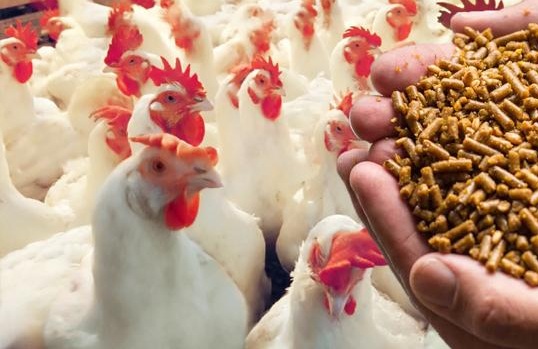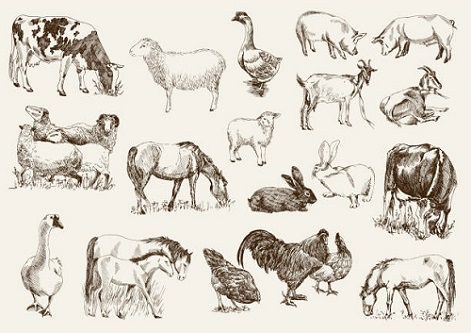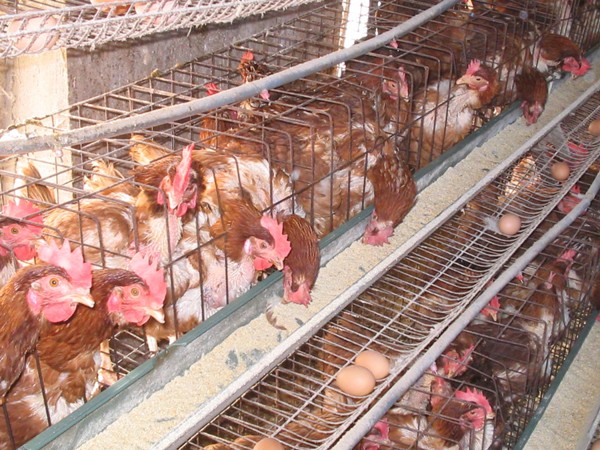There have been significant surges in the price of livestock feed ingredients and farm inputs across the globe. This situation is very obvious and undeniable, and it is due to unfavorable climate changes, the recent global pandemic, poor soil yield and increased competition between humans and livestock animals for food.
The bad thing about an increase in the cost of feed and other inputs is that it increases the production cost and reduces the producer’s profits. Currently, this is the current challenge livestock farmers are facing, especially in Nigeria.
This situation has become so terrible to the extent that a lot of farms have closed down because of the losses. Some poultry farm owners have moved to an entirely different business and left the industry for those who can cope.
Breaking even is even a tug of war because most customers are not ready to buy our farm produce like chickens or eggs at higher prices. Hence, they move to other farms that are ready to sell to them at ridiculously low prices.
If you are a poultry farmer and you’re frustrated and feeling like shutting down, this post is for you. You’re not the only person faced with this crisis. We are all battling to stay afloat in the industry.
In this post, I have come up with some feasible solutions to save costs and alleviate the effects of continuous increments in the price of feeds and inputs. These solution tips would help your farm to survive while you hope things go back to normal soon.
How to Save Costs amid Increasing Feed Prices
- Reduce Your Stock by selling less productive animals: Reducing the number of birds is a difficult decision to make but it is something you do if you still want to keep your farm running. The logic behind this is that the lower the number of animals you keep, the lower the amount you spend to feed them. If the situation gets very intense, sell about 30% of your animals, especially the less productive ones and use the proceeds to support your overheads.
- Mill the feed yourself: The major reason to self-formulate and mill feeds for animals is to reduce the cost of feeding. Although this also comes with its own additional costs as you will need to buy machines like a hammer mill (crusher), and mixers and you will need to construct a store or warehouse to keep ingredients and milled feeds. However, it is a profitable thing in the long run. Provided you have a considerably high number of animals, access to high-quality feed ingredients and the efficacy of the formulated feed is tested, don’t change from buying ready-made feeds to milling the feed yourself.
- Buy feed ingredients in bulk. When you buy feed or feed ingredients in bulk or large quantities, the seller or supplier tends to give you good discounts. Some even provide free delivery thereby helping you to save money. Therefore, if you can afford to buy feed ingredients in large quantities and have an ideal place to keep them, go ahead with it. You are going to save money.
- Add value to your product: The most important thing is to get profits after selling your farm produce and more profits could be earned through value addition to existing products. For instance, if you’re into meat chicken farming, you can add value by simply processing the birds and packaging them. By doing this, your produce commands higher prices and you earn more money.
- Downsize your workforce: If reducing the number of farm attendants is the best option to keep your farm running, you should go ahead. Don’t forget that when it becomes difficult to pay wages and salaries, some of the workers will resign or leave with or no prior notification. You have done well if downsizing is the way to go to reduce your operating costs.
- Improve your management practices: Poor animal management would cause you to spend more on things like drugs or medications, litter materials, gas, consultancy and energy. Take farm hygiene and sanitation seriously on your farm. Biosecurity measures must be put in place to protect you and your animals. Avoid overcrowding and water spillage to reduce the frequency of changing litter. Vaccinate at the right time to reduce the chance of disease outbreak and ensure to avoid feed wastage either in the feed mill or in the pen.
If you have no other source of income other than your farm, it is important to do everything possible or feasible to make the venture profitable so as to keep it alive. The above tips will help you greatly to keep your poultry business profitable as well as help you survive in this era of incessant increases in the price of feeds and drugs.


